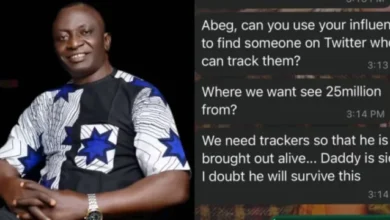Canada rejects over 1,500 Nigerian asylum claims in 2025

Brazil’s former president, Jair Bolsonaro, has been sentenced to 27 years and three months in prison after the country’s Supreme Court found him guilty of orchestrating a coup attempt to remain in power following his 2022 election defeat.
The ruling, delivered by a five-member panel of justices, marks a dramatic downfall for the right-wing leader who once styled himself as Brazil’s “Trump.”
Four judges voted to convict Bolsonaro while one dissented, arguing that the evidence was insufficient.
Bolsonaro, 70, was convicted of leading a conspiracy to undermine Brazil’s democratic institutions and prevent the peaceful transfer of power after losing to leftist rival Luiz Inácio Lula da Silva.
The justices ruled that he actively pushed military leaders to back a coup, spread false claims about the country’s electronic voting system, and even tolerated plans to assassinate Lula, his running mate, and a Supreme Court justice.
The court not only sentenced Bolsonaro to prison but also banned him from holding public office until 2060 effectively ending his political career
The verdict has further polarized Brazil. Supporters see the ruling as a political witch hunt designed to destroy a conservative icon, while opponents argue it is overdue justice for a leader who nearly dragged the country into authoritarian rule.
Bolsonaro, who did not attend the sentencing due to being under house arrest, has consistently dismissed the case as persecution.
He previously claimed the charges were part of a scheme to prevent him from contesting the 2026 elections, even though a prior conviction had already barred him from running.
His lawyers denounced the sentence as “absurdly excessive” and vowed to appeal. Legal experts, however, note that overturning the conviction may prove difficult since only one of the five justices voted to acquit him.
The case has also sparked diplomatic ripples. Former U.S. president Donald Trump, who has long supported Bolsonaro, described the verdict as “very surprising,” comparing it to his own legal battles.
He framed Bolsonaro’s prosecution as an extension of political persecution and justified his earlier decision to slap heavy tariffs on Brazilian exports as retaliation.
U.S. Secretary of State Marco Rubio went further, calling the ruling “unjust” and threatening a response against what he labeled a witch hunt.
Brazil’s foreign ministry pushed back sharply, declaring that “threats like the one made today by U.S. Secretary of State Marco Rubio… will not intimidate our democracy.”
The failed coup culminated on January 8, 2023, when Bolsonaro supporters stormed Brazil’s Congress, Supreme Court, and presidential palace, mirroring the U.S. Capitol attack two years earlier.
More than 1,500 people were arrested after order was restored.
Justice Alexandre de Moraes, who oversaw the trial, warned that Brazil had narrowly avoided sliding back into dictatorship.
Justice Cármen Lúcia, whose decisive vote sealed Bolsonaro’s fate, likened the attempted coup to a “virus” threatening the survival of democratic society.
For Bolsonaro, the prison sentence could mean spending the rest of his life behind bars.
His legal team is now expected to argue for house arrest, citing his age and health.
Yet for many Brazilians, the conviction represents a turning point in the country’s struggle to defend democracy. As one justice put it: “There is no immunity to authoritarianism.”
Post Views: 27





